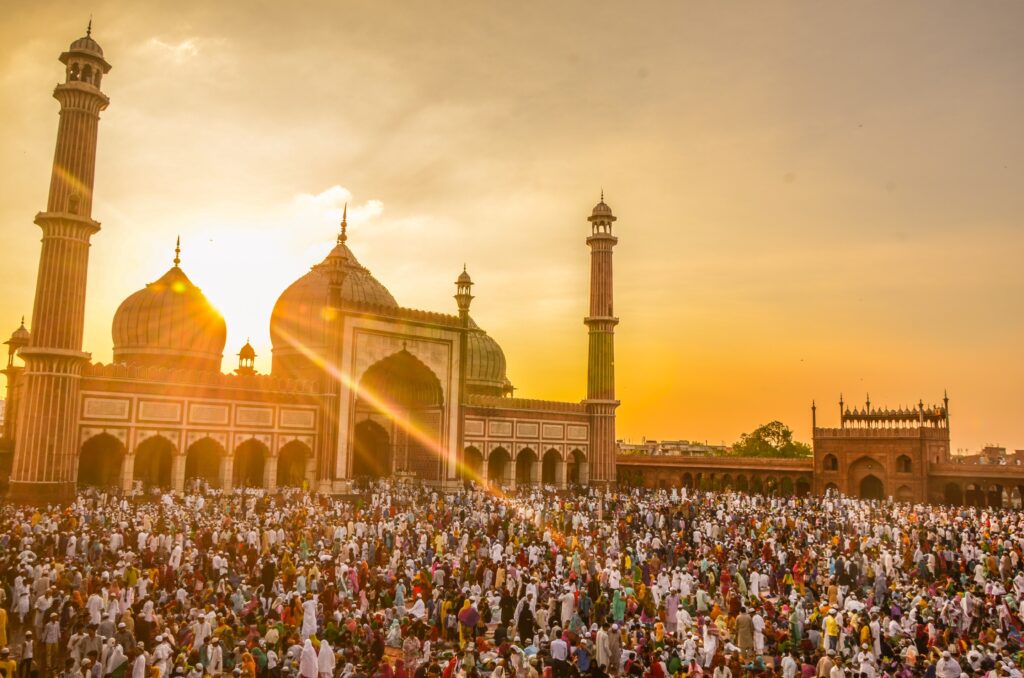Tuesday, May 13th, 2014
Proof!
A delegation of seventeen men of Banī al-Azd came to the Prophet ﷺ in the ninth year after the hijra. It is said that the Prophet ﷺ was impressed with how they presented themselves before him and asked them, “Who are you?”
Banī al-Azd had already entered Islam at the hand of the messenger that the Messenger of God ﷺ had sent to them earlier in the year.
When the Prophet ﷺ asked them, “Who are you?” they responded with, “Believers.”
The Prophet ﷺ smiled and challenged them, “For every thing said there is proof; what is the proof of your belief?”
They responded that they had fifteen examples of their belief, five things the Prophet’s messenger had instructed them to believe in, five things he had ordered them to do, and five things they brought forth from their lives before Islam.
The story of Banī al-Azd resonates with me, because so many come to Islam with beautiful and wonderful characteristics and qualities. They are honest, genuine, and sincere. I have seen Muslims doubt these good qualities within themselves, when overwhelmed with rules and unclear lines between culture and religion.
The Prophet ﷺ asked them about all fifteen examples, saying, when asking about the last five, “And what are the five, which you were raised upon in jāhiliyya?”
They answered, “Gratefulness in times of plenty, forbearance in times of trial, contentedness in the face of bitter fate, courage in times of battle, and the leaving of gloating over enemies.”
The Prophet ﷺ responded with words of praise that are almost unbelievable in their beauty. He said, “Wise and learned, their depth of understanding brings them to [the level of] prophets.”
His absolute approval of their good qualities is a loud and clear statement. We must always have open eyes to the truth around us. We must never deny the good and decent within ourselves and in our larger communities. Here the Prophet himself ﷺ praises and elevates the good qualities of a people. Qualities that are presented as having originated in jāhiliyya. We learn that good is good. That Islam affirms goodness and refuses the bad and the ugly. In our hearts we know the difference. Wherever true goodness is found, we will recognize it as that which is beautiful and we will recognize it as part of faith, if we are people of wisdom and learned.
The Prophet ﷺ was always helping people be their best selves, and to the delegation of Banī al-Azad he said, “I shall increase your examples [of belief] by five more, such that they will be twenty.” Here he assigns five difficult and ascetic human qualities. “If you are as you say you are, then do not collect what you will not eat, and do not build that which you will not live in, and do not compete over that which you will give up on the morrow, and have taqwā of God, to Whom you will return, and in front of Whom you will be presented, and focus on that which is before you and is eternal.”
It is said that Banī al-Azd held to the Prophet’s ﷺ words and directives.
Could we be counted as ‘Banī al-Azd’? Our refrigerators often hold more than we will eat. We often desire more ‘house’ than we need. We compete over things like our weight, and our possessions – all of which will matter little as we age. Our taqwā waxes and wanes depending on whose company we keep. And our focus is rarely on the ākhira, but rather on this very moment, and matters of this dunyā.
What about at the first moments of their meeting with the Prophet ﷺ? Would he ﷺ be impressed with us? Would the way we stand and speak demonstrate an inherent goodness? Would he ask us, “Who are you?” and would we be able to answer, “Believers” and be ready with proof?
Are we walking and breathing examples of good character? Are we wise and learned?
Are we ready to move further along the path of faith? Will it be said of us, “they followed the words and directives of the Prophet ﷺ?”
Yā Rab – help us so our answer can become and will always be: ‘Yes!’

